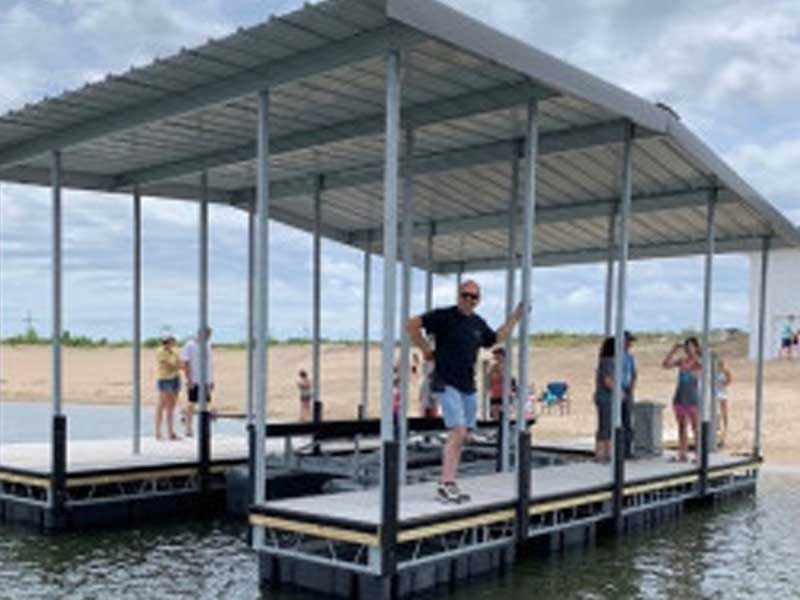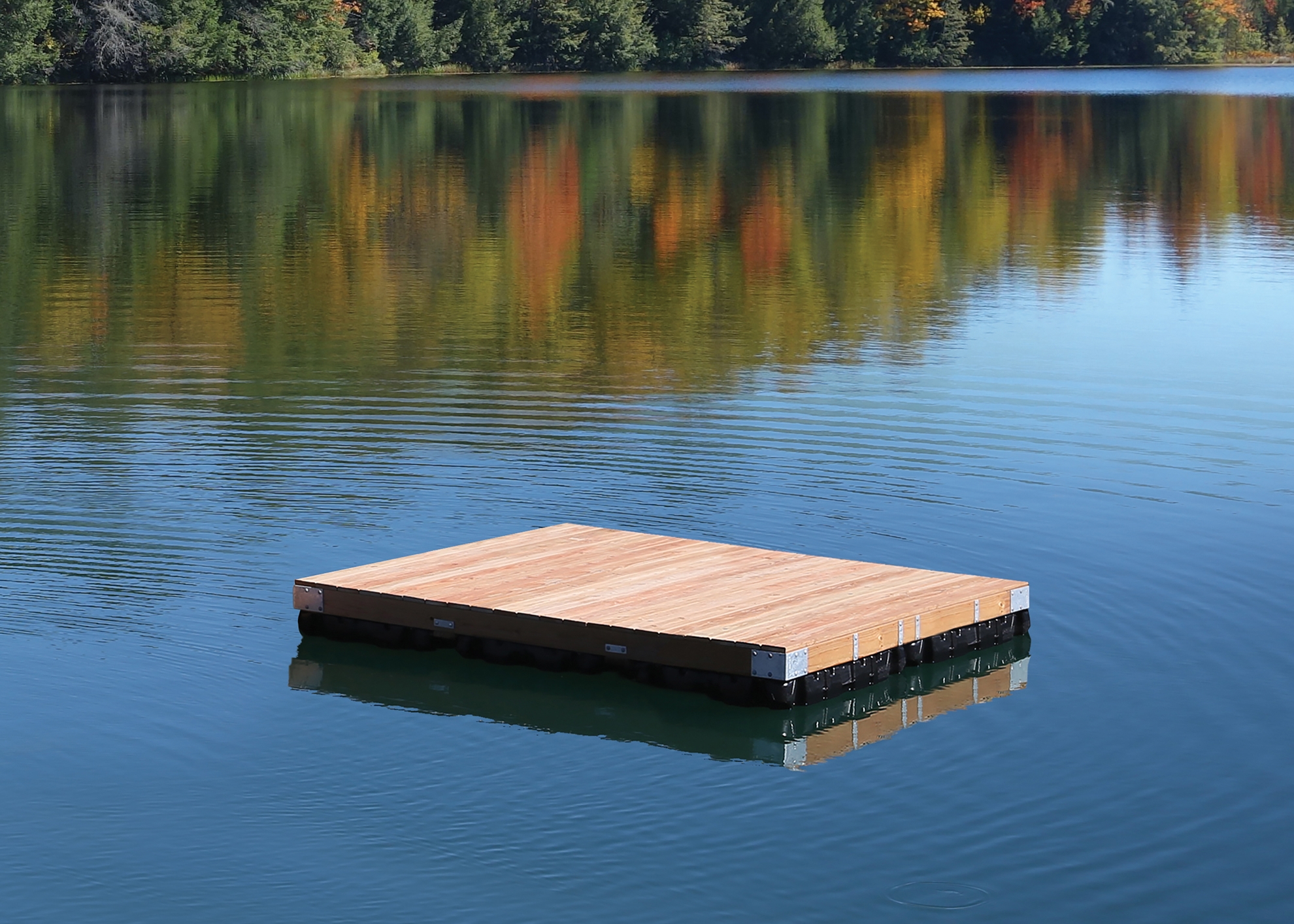Benefits of Working with an Established Floating Dock Company for Comfort
Benefits of Working with an Established Floating Dock Company for Comfort
Blog Article
Floating Docks: The Ideal Choice for Versatile Water Access
Floating docks present an engaging remedy for a variety of water gain access to needs, using convenience that goes beyond standard mooring choices. Their capacity to adapt to fluctuating water degrees while guaranteeing stability and safety makes them especially helpful for both entertainment and business applications. The modular nature of floating docks promotes modification, catering to certain needs. However, the subtleties of installation and upkeep, together with the variety of applications, warrant a closer evaluation to fully value their prospective benefits and effects for waterway accessibility methods.
Advantages of Floating Docks
Floating docks offer various benefits that enhance water gain access to for different applications. Their ability to rise and drop with changing water degrees makes them particularly useful in environments with fluctuating trends or seasonal variations. This flexibility guarantees that vessels can conveniently anchor without issue for the water's deepness, giving a trustworthy platform for entertainment, industrial, and industrial usages.
In addition, floating docks are often built from durable materials that withstand corrosion, making them ideal for long-lasting use in marine environments. Their installation is commonly much less intrusive than traditional set docks, reducing the environmental influence and assisting in quicker implementation (dock company). This flexibility allows for easier relocation or reconfiguration according to customer requirements or ecological adjustments
Safety is one more essential advantage; floating docks can provide stable gain access to for individuals disembarking or boarding from boats and lower the risk of mishaps connected with unsteady surfaces. Additionally, they can be developed to fit a range of accessories, such as cleats and fenders, enhancing performance. Overall, floating docks represent an effective solution for boosting water gain access to across diverse fields while advertising security and environmental sustainability.

Types of Floating Docks
Various sorts of floating docks accommodate different requirements and settings, each developed with details features to enhance functionality. The most typical kinds include modular docks, which contain interlocking sections that enable easy personalization and development. These docks are suitable for entertainment use, as they can be customized to fit numerous boat dimensions and water problems.
Another prominent alternative is the fixed floating dock, which stays anchored in position but drifts with altering water degrees. floating docks. This kind is particularly suited for areas with minimal tidal changes, providing steady accessibility for angling or swimming. Furthermore, there are drive-on docks, which feature a sloped layout that permits boats to quickly drive on and off, making them ideal for individual boat and smaller vessels
For business applications, sturdy floating docks are readily available, constructed from reinforced materials to endure considerable tons and severe marine atmospheres. Eco-friendly floating docks use sustainable materials and layouts to lessen ecological effect, typically incorporating features like vegetation to sustain regional wildlife. Understanding the numerous kinds of floating docks makes certain that individuals can select one of the most ideal option for their particular requirements.
Installment Process Overview
An effective setup of floating docks requires mindful planning and attention to information to guarantee optimal efficiency and safety. The first step entails examining the site problems, including water deepness, present, and possible challenges. This assessment educates the choice of the appropriate dock products and design customized to the particular setting.
Next, getting required authorizations is vital, as many territories have policies pertaining to building and construction on water bodies. When consents are protected, the installation can continue. Begin by preparing the structure, which may involve anchoring systems or pilings tailored to the dock type and regional problems.
Adhering to the foundation arrangement, assemble the dock sections according to producer specifications. Make sure that all elements are firmly fastened and lined up to stand up to ecological stresses. Setting the dock in the assigned location, guaranteeing it is degree and stable.

Upkeep Tips and Finest Practices
After the setup process is complete, ongoing upkeep plays an essential function in making sure the durability and performance of floating docks. Routine evaluations ought to be conducted to recognize any kind of indications of damage, wear, or wear and tear - floating dock company. Look for any kind of loosened fittings, splits, or separation in the dock areas, as these can jeopardize structural honesty
Cleaning the dock is vital to get rid of debris, algae, and various other build-up that can affect its look and security. Utilize a mild pressure clean periodically to keep cleanliness without creating damage to the surface area. Additionally, using a safety sealant every couple of years can help improve longevity and withstand ecological wear.
Take note of the mooring lines and supports, ensuring they are safe and secure and totally Our site free from deterioration. Replace any type of abject components quickly to stay clear of risks. Seasonal modifications may additionally be necessary; during extreme weather, link enhancing the dock or repositioning can avoid damage.
Applications for Floating Docks
Floating docks offer a plethora of applications, catering to both recreational and industrial demands. In recreational settings, they provide smooth access to waterways for tasks such as boating, fishing, and swimming. Their adjustable nature enables installment in varying water degrees, making certain risk-free and secure gain access to despite tidal fluctuations.
Commercially, floating docks are essential for marinas and waterside organizations. They promote the docking of vessels, enabling efficient unloading and loading of goods. Their modular design enables easy expansion or reconfiguration to accommodate changing business demands, making them ideal for boat rentals, tour procedures, or angling charters.
In addition, floating docks are utilized in environmental applications such as marine study and environment repair. They can work as platforms for scientific researches, keeping track of water quality, or conducting wild animals studies without disturbing sensitive ecosystems.
In commercial contexts, floating docks are image source used in building and construction jobs, offering access to hard-to-reach locations for devices and personnel. Their versatility, longevity, and marginal influence on the environment make them an optimum option for a variety of applications, improving both functionality and accessibility in numerous water-based atmospheres.
Conclusion
Finally, floating docks represent an optimum option for diverse water accessibility needs, owing to their adaptability, toughness, and modular design. These frameworks help with safe mooring for different applications while minimizing ecological impact during installation. The minimized upkeep demands further improve their usefulness. Because of this, floating docks offer as an important asset for leisure, business, and environmental tasks, making sure trusted accessibility to waterways and promoting lasting techniques in aquatic atmospheres.
Floating docks existing an engaging remedy for a range of water accessibility requires, offering adaptability that transcends typical mooring options.Floating docks offer numerous benefits that enhance water accessibility for various applications. On the whole, floating docks represent an efficient service for enhancing water access throughout diverse fields while advertising safety and ecological sustainability.
Another preferred option is the fixed floating dock, which continues to be anchored in place but drifts with changing water degrees.In final thought, floating docks stand for an optimum solution for diverse water gain access to requires, owing to their versatility, durability, and modular layout.
Report this page